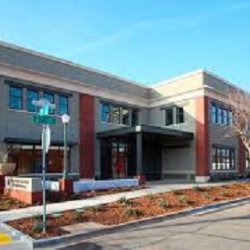Through SMUD's Solar Community Grant program, GRID Alternatives North Valley is set to install a solar electric system to help power the Sacramento Food Bank and Family Services Arata Brothers building in Oak Park later this year. This will lower their electricity bill and leave more money available to deliver needed community support services.
For the past 40 years, the Sacramento Food Bank and Family Services have connected people to resources such as clothing, food, and legal support. Recently, they have seen a massive spike in demand amid the COVID-19 pandemic and ensuing shelter-in-place directive. More and more families are seeking food and support services as the economy is being hit with large swaths of job losses. This increase has meant a rise in operating costs for the Sacramento Food Bank.
In order to sustainably keep operating at these heightened levels, the nonprofit will receive a 35 kW solar system to offset 45% of its usage. “Reduction in utility costs will help fund our robust Parent Education and our Clothing programs housed in this building. We will be energized supporters and advocates of solar energy and GRID Alternatives.,” said Jon Hillegeist, Director on the Board of Directors at The Sacramento Food Bank and Family Services. “Support from SMUD was a key factor in this decision. GRID Alternatives’ business model of training solar installers is in full concert with our Mission Statement of 'moving people from dependency to self-sufficiency through education’. “
GRID plans to provide training for low-income community members to help install the system. The idea is not only to save money and help combat climate change but to expose local trainees to careers in the growing clean energy industry. According to the U.S. Bureau of Labor Statistics, the job outlook for solar photovoltaic installers is expected to grow 63% from 2018 to 2028, and the median salary is $21.58 per hour. The total savings this system will provide for the food bank over the course of its lifetime is $198,600. Renewable energy is now a part of the solution to decrease the number of food-insecure people in Sacramento and build towards more economic and environmental equity.

